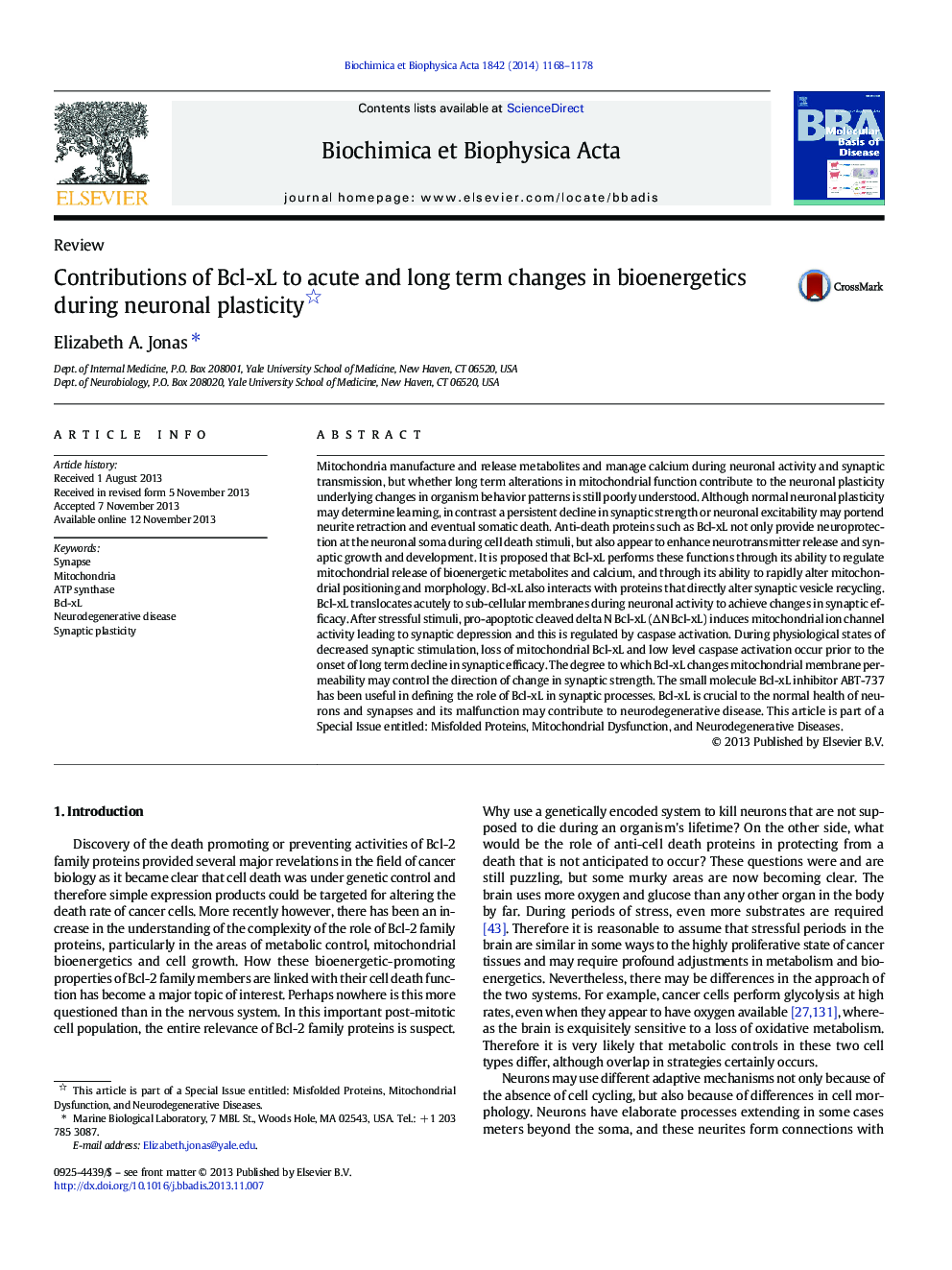| Article ID | Journal | Published Year | Pages | File Type |
|---|---|---|---|---|
| 1904742 | Biochimica et Biophysica Acta (BBA) - Molecular Basis of Disease | 2014 | 11 Pages |
•Long term changes in synaptic plasticity are regulated by Bcl-xL.•Effects of Bcl-xL on bioenergetics contribute to synaptic plasticity.•In neurons, Bcl-xL alters ATP synthase activity and metabolic efficiency.•Bcl-xL interacts with Drp1 and clathrin to increase the rate of synaptic vesicle recycling.
Mitochondria manufacture and release metabolites and manage calcium during neuronal activity and synaptic transmission, but whether long term alterations in mitochondrial function contribute to the neuronal plasticity underlying changes in organism behavior patterns is still poorly understood. Although normal neuronal plasticity may determine learning, in contrast a persistent decline in synaptic strength or neuronal excitability may portend neurite retraction and eventual somatic death. Anti-death proteins such as Bcl-xL not only provide neuroprotection at the neuronal soma during cell death stimuli, but also appear to enhance neurotransmitter release and synaptic growth and development. It is proposed that Bcl-xL performs these functions through its ability to regulate mitochondrial release of bioenergetic metabolites and calcium, and through its ability to rapidly alter mitochondrial positioning and morphology. Bcl-xL also interacts with proteins that directly alter synaptic vesicle recycling. Bcl-xL translocates acutely to sub-cellular membranes during neuronal activity to achieve changes in synaptic efficacy. After stressful stimuli, pro-apoptotic cleaved delta N Bcl-xL (ΔN Bcl-xL) induces mitochondrial ion channel activity leading to synaptic depression and this is regulated by caspase activation. During physiological states of decreased synaptic stimulation, loss of mitochondrial Bcl-xL and low level caspase activation occur prior to the onset of long term decline in synaptic efficacy. The degree to which Bcl-xL changes mitochondrial membrane permeability may control the direction of change in synaptic strength. The small molecule Bcl-xL inhibitor ABT-737 has been useful in defining the role of Bcl-xL in synaptic processes. Bcl-xL is crucial to the normal health of neurons and synapses and its malfunction may contribute to neurodegenerative disease. This article is part of a Special Issue entitled: Misfolded Proteins, Mitochondrial Dysfunction, and Neurodegenerative Diseases.
